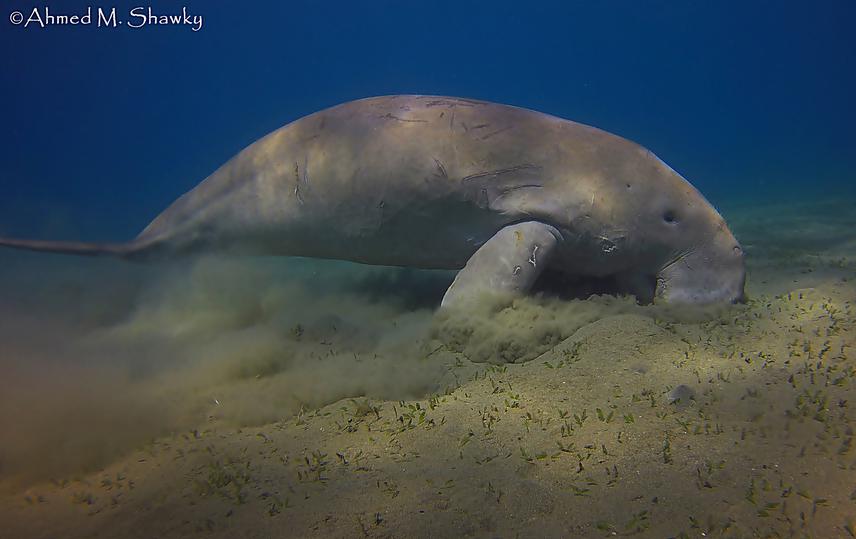Ahmed Daoud
Other projects
26 Nov 2015
Assessment of the Status and Distribution of Dugong dugon in Wadi El-Gemal National Park, Southern Red Sea, Egypt
11 Jul 2018
Analysis of Feeding Trails Provides Evidence of the Number of Dugongs Excavating Seagrass at Key Habitats Seasonally in the Egyptian Red Sea
6 Jun 2023
Assessment the Presence of Dugongs in the Suitable Habitats in the Egyptian Red Sea
Dugongs appear to be rapidly declining in East Africa. Marsa Alam is one of the famous tourist attractive places in the Red Sea, Egypt. The number of resorts increased and occurrence of two Harbours with many of daily and safari boats that visit the dugong area for diving and snorkelling trips. All these activities increase the human impacts on the dugong. The aim of his study is to assess the dugong behaviour, ecology and the effect of tourism activities on the dugong in Marsa Alam. Public awareness and guidelines will be conducted among divers and snorkelling guides as well as the tourists.

©Ahmed Shawky.
Dugong watching is one of main ecotourism conducted in Marsa Alam and increased to a remarkably extend. Also, it is important as a conservation tool of ecotourism since it educates people about the marine environment while informing them about the targeted species. Repeated short-term avoidance behaviour stimulated by the presence of humans can lead to long-term impacts on a dugong behaviour, and even lead to changes in habitat. Dugong may respond to a disturbance in different ways by horizontal avoidance and/or change their behavioural state, including feeding behaviour, speed, diving, ascending rate, as well as a decrease in resting state. Photo identification will conduct to know how many dugongs we have in Marsa Alam and study the movement of it among sites. This will let the tourists and guides to aware of dugong identification in each site. The tourists will aware of the dugong behaviour so can participate in its conservation.
Code of conduct for dugong watching ecotourism will be prepared in a standardized outline for a distinctive specialty course by PADI (Professional Association of Diving Instructors), which I’m Master Instructor in this federation. After PADI accept this outline, this course will be approved for teaching internationally with a certificate for divers and snorkelers. A questioner form will design specially to the tourist to evaluate the ecotourism of dugong watching in Marsa Alam. The data gathered from this survey will help the design maker in a further management plan for dugong conservation which not has before. I suggest visiting 8 different sites, which differ in habitat, area, tourism activities that extended to 100 km. The most impacted sites will visit more than other sites. Video shots will take underwater using SCUBA diving and snorkelling to identify the different behavioural categories of the dugong-like feeding, traveling, resting, social, ascending, rolling, and disturbing by human and any other behaviour we can record.
The training program will be prepared to educate 20 volunteers from dive and snorkelers guides from Marsa Alam and some graduated student from the Egyptian universities. The program will include the specialty course, in addition, more details on how monitoring the dugong (i.e., Photo ID, calculate the behaviour categories, feeding ecology, questioner survey and conducting the public awareness. All volunteers will be enrolled to The Egyptian Dugong Team (EDT).